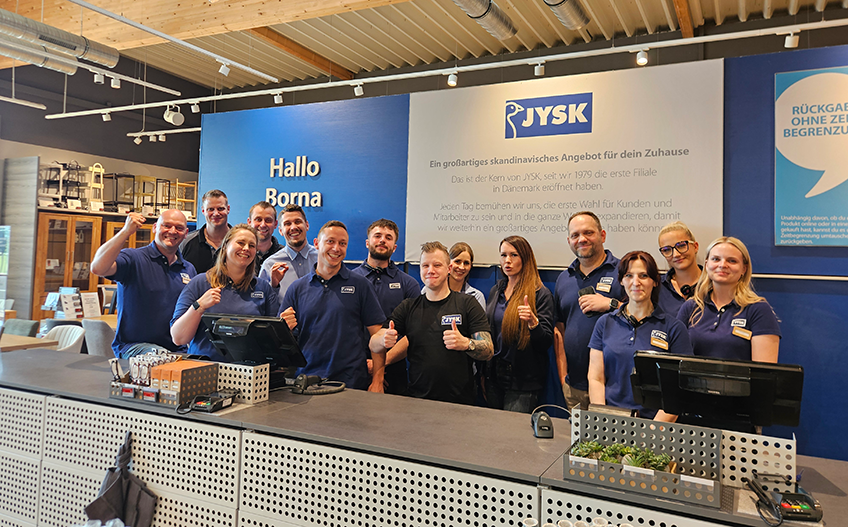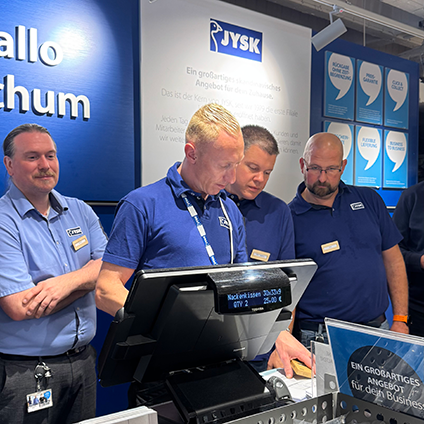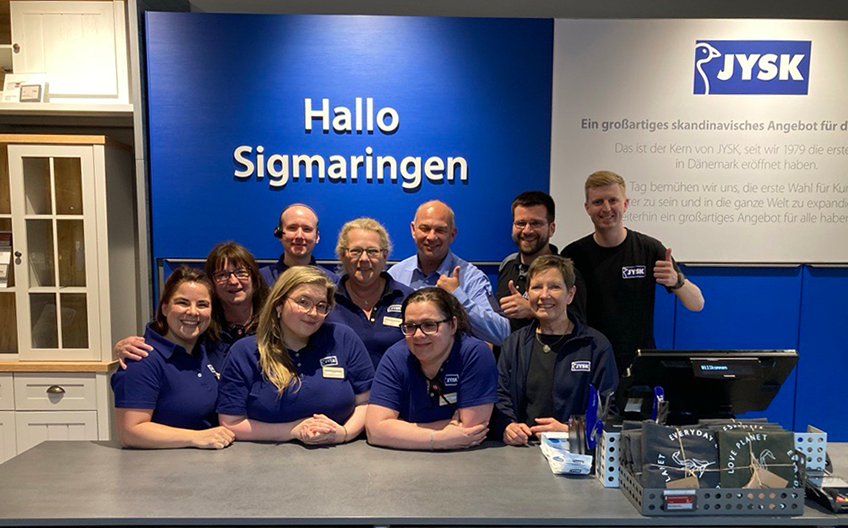Germany kicks off Unified Commerce
Date:
Author: Michael Rotermund, Head of Communications Germany
Category: Seamless Cross Channel , Technology
JYSK continues the journey towards omnichannel by implementing Unified Commerce in the first three JYSK stores in Germany.

Following the rebranding of JYSK in Germany from Dänisches Bettenlager to JYSK in 2021, the transition to Unified Commerce marks another significant milestone for JYSK’s largest market.
After months of preparation, training, and strong collaboration across teams, Unified Commerce has been successfully launched online and implemented in the first three pilot stores in Germany located in Borna, Bochum, and Sigmaringen.
“This will benefit our customers as well as our colleagues,” says Patrick Gretsch, Senior Retail Store Supporter, who took part in the rollout. “We want to be the most attractive employer in the retail sector, and with these new, easy-to-use systems, we are taking a huge step forward.”

Unified Commerce focuses on integrating individual sales channels, customer interactions, and backend systems into a single platform to provide a unified customer experience both online and in stores.
“Our online and physical stores will be able to work much more closely together in the future, creating a truly seamless shopping experience for our customers,” adds Patrick Gretsch.
On the path to full integration
With more than 950 JYSK stores, Germany is the largest JYSK market, and the transition to Unified Commerce requires a thorough implementation strategy. Following the initial three pilot stores, nine more are already scheduled to switch to the Unified Commerce platform, totaling 27 stores in phase one.
After a ‘hypercare phase,’ during which the systems will be thoroughly tested, the final rollout and full integration across all JYSK stores in Germany are expected to be completed by early November.
With this, Germany is set to join the existing eight JYSK countries — Denmark, Spain, Portugal, France, Austria, Switzerland, Turkey, and Morocco — that have fully implemented Unified Commerce.






